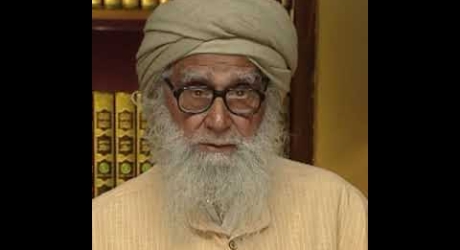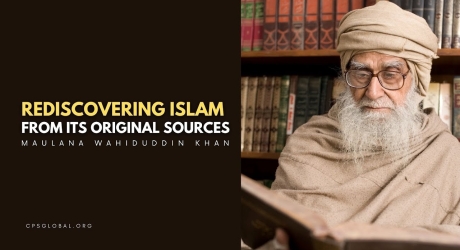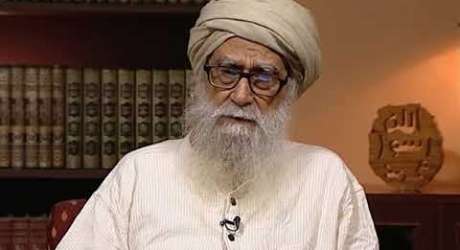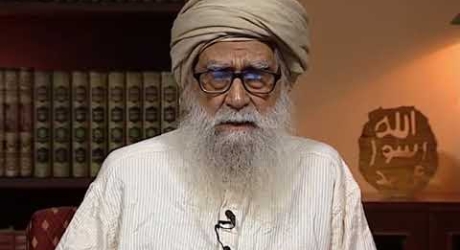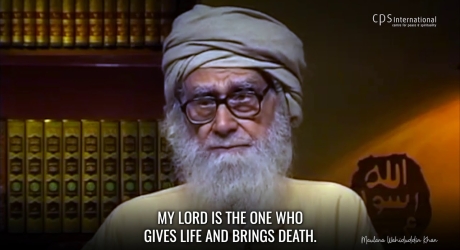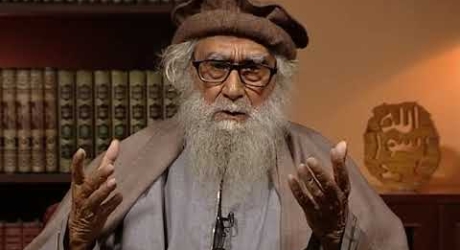Islam is a religion of peace and humanism. Not only Islam but all other religions are religions of peace. The Sufis have given the best interpretation of Islam. A Persian phrase, ‘Sulh-e-Kul’, which means peace with all, truly expresses the spirit of Islam. There are two primary sources of Islam, the Quran, which is the word of God and the Hadith, which are the sayings and the actions of the Prophet of Islam. We find the true message of Islam through these sources. A very relevant Hadith was recorded by Bukhari, which clarifies that when the Prophet had to choose between two paths, he always opted for the easier, peaceful course of action rather than the harder course of action. One is free to choose between the two paths of peace and violence. According to a Hadith, the Prophet of Islam defined a believer thus— “A believer is one from whom people are safe as regards their lives and property.” (Sunan an-Nasa’I, Hadith No. 4995)
Muslim scholars have written several books to praise Islam and the Prophet and highlight the role of Islam in history. There is however no scientific analysis in their writing on this subject. The modern mind is not addressed by such books. However, the books written by non-Muslim scholars are more scientific in their approach.
Manabendra Nath Roy (d. 1954), a renowned political theorist wrote a book entitled, Historical Role of Islam. He was not a religious man; however, he acknowledged that the change Islam brought was ‘the most miraculous of all miracles.’
Henri Pirenne (d.1935), an acclaimed Belgian historian wrote that Islam changed the course of history and the traditional order of history was overthrown.
The topic that I have chosen for the talk today pertains to this role that Islam played in history played by Islam in defining history.
Prophetic period
Muslim scholars classify the Prophetic period into two – Meccan period that lasted for 13 years and Medinan period that was lasted 10 years.
The Meccan period is described as the period of oppression (zulm) and the Medinan period as that of power. All the books written on these periods talk on these lines.
But it is important to note that this classification is not right. It is a reflection of the wrong understanding of Islam that has come to engulf today’s Muslims. The goal of Islam is not Caliphate or political power. The sole target of Islam is to change the mind of man.
Islam’s two point formula
My understanding of Islam has led me to realise the two basic points of the Islamic formula. Firstly, it strives to bring about change in the minds of people, that is, give man a new ideology to live by. Secondly, it encourages man to adopt status-quoism in the political system. It was this two-point approach that made Prophet Muhammad successful.
The success of Prophet Muhammad has always arisen curiosity amongst many. An Orientalist wrote about Prophet Muhammad that he faced adversity with the determination to wring success out of failure.
Dr Michael Hart in his book “The 100” placed Prophet Muhammad at the number one position amongst the hundred most influential people in history. However, neither of them could explain what led the Prophet to achieve such tremendous success.
Prophetic policy
A study of the life of Prophet Muhammad suffices to throw light on the reasons that made him so successful. A key point that emerges is that the Prophet left politics as it is (did not disturb the political status quo) and tried to bring about a change in the minds of people.
Prophet Muhammad possessed exceptional leadership qualities, had a good business acumen and was an extremely virtuous man (referred to as al-ameen or trustworthy, even by his dire opponents). The Quraysh leaders therefore, offered to make him the head of their tribe. However, the Prophet refused to do so and said,
“I seek not sovereignty over you.”(Ibn Hisham)
This was not a simple refusal. It lodged within it a profound vision of the Prophet. It meant that the starting point of his mission was not to capture political power but to bring about an ideological change in the minds of men. Prophet Muhammad continued his efforts for 13 years in
The situation at
Muslims generally think that the Meccan period of the life of Prophet was that of modesty, however, it was a period of intellectual change. In
It is therefore important to understand that change in the mindset of individuals paves way for the emergence of a new society. Then those in whose hands the political power comes to rest are also changed individuals. This brings forth the change in status-quo. The same has been explained in a Hadith,
“The rulers are same as the ruled.”(Mishkat)
The fading away of a revolution
The revolution brought about by the Prophet was so strong that its momentum lasted a thousand years. It however faded after the coming of renaissance. The Europeans during this period brought about the scientific revolution which addressed the modern mind through scientific reasoning. Whereas Prophet had come in the traditional age where scientific argument was not required to convince people, but with the advent of scientific age, this traditional presentation of Islam could no longer address the modern mind.
Since the past 200 years, Muslim world saw an upsurge of movements. The result of these movements however, was nil. But the Muslims, not having learnt any lesson from these failures continue to speak the language of complaints.
The onus for the continuing failure of Muslim movements falls upon the incorrect analysis done by their leaders. These leaders could see only one aspect of the change - that it led to the fall of Muslim Empires everywhere, be it the Fatimid, the Ottoman or the Mughal Empire, they all fell apart. Having witnessed this fall, they became imbued with the singular vision of reviving the Muslim rule. This mentality of Muslims can be gauged from the fiery speeches of their leaders like Shah Waliullah who said that Muslims needed to break the current structure and constitute a new system. Such a mindset made these leaders so unperceptive that they failed to discern that the ‘rule’ had not come to an end; it still existed in over 57 countries.
The correct analysis
It was this imprudent analysis done by the Muslim leaders that instilled in them the complaint-mentality. The correct analysis would have been to realise that the momentum of the Prophet’s revolution had come to an end with the dawn of scientific age. Now the Muslims were required to accept the present equation of Western powers being dominant and re-assess their own strategy. Hence, the starting point was to go back to the Meccan model of the Prophet and strive to bring about change in the minds of people.
However, the Muslims did not consider the Meccan model; they rather tried to establish the Medinan model of strength. That is, instead of focusing on changing mind in the new age, they tried to establish political rule first. This political jihad of the Muslims was equivalent to putting the cart before the horse. The started confronting that, which would have been a result of the adoption of the Prophetic formula. They needed to first change the minds of individuals and the change in status quo would have followed but Muslims failed to understand this wisdom. They wanted to change the political status quo without striving to change the minds of people. It was this futile attempt at altering the sequence of events that has led Muslims to strive for the past 200 years without gaining anything. In other words, they did not revive the Meccan period of Prophet’s life (change in the personality of individuals) and tried to emulate the Medinan period (change in political status quo).
Muslim phenomena at present
The failure to adopt the Prophetic policy engaged the Muslim leaders in fighting for political power. In stead of developing love and compassion towards humanity, Muslims started hating those who possessed political power and saw them as conspiring parties.
Here I am reminded of an article in a newspaper on dar-ul-harb. The author said that the concept of dar-ul-harb was incorrect but he simultaneously alleged that even the non-Muslims were involved in this. This approach of finding faults with others in the face of one’s own faults is a highly ineffective way of treating feedback. It does not lead to any change in a person; he thinks he is not wrong as others are also engaged in same thing. The Quranic style is different; the Quran gives unilateral advice (naseehat) to believers. Such style brings spirit of change.
The right approach
The Western revolution was a positive change and not a conspiracy. Western nations converted traditional age to scientific age. Muslims due to their hate for western nations could not learn the science discovered by western society. Hence, they remained backward in scientific and industrial progress.
Upon analysis, Muslims would have realised that the downfall of Muslim empires was not the result of any conspiracy. It was just a matter of the coming of a new age of modern and scientific thought.
Islam is a completely non-political movement. On reading the basic teachings in the Quran, we see that in Islam peace is a rule and war is an exception. The three wars which took place in Prophet’s life were for a temporary period and lasted only half a day each. In fat it is said that 10,000 Great Wars were fought in history each lasting years, decades or even centuries. In this light, the wars in which Prophet Muhammad engaged were skirmishes and not full-fledged wars.
It is imperative to understand the distinction that a system is formed by the people but people cannot be used to judge the ideology. Just as the Indian Constitution cannot be judged by the practices of the bureaucracy, Islam should not be judged in the light of Muslim practices.
The world we live in today has established systems for all things. For example, the selection procedure of an American President is carried out on the basis of certain fixed guidelines. However, in Islam, as can be seen in light of history, there is no such fixed system. The four caliphs of Islam were chosen by four different methods. This was because neither Quran nor Hadith gave any such framework for establishing political rule. This shows that Islam is a non-political movement. The target of Islam is building man; rest must be left on to the system prevalent. This is the right approach and the only one that could lead us to positive result.
In the words of a writer, all those incidents in history that are referred to as “revolutions” were actually “coups”. That is, they were just events which led to stepping down of one ruling party and coming into power of another one. The lives of people and the society continued to be what it was. In this sense, Prophet Muhammad was an exception. The revolution brought about by Islam changed the traditional order. Men, society, system, and values, it all changed. And this was possible only because Prophet Muhammad chose the right starting point.
This was the lesson that Prophet Muhammad gave to the world. But Muslims failed to adopt his formula and having tied the cart before the horse, neither benefited form it themselves, nor let any one else benefit from it. The failed to understand that the real target of Islam was to build the personality of man and it was in this sense that the Islamic revolution was truly a “revolution”!
May God help us revive the true focus of Islam!





